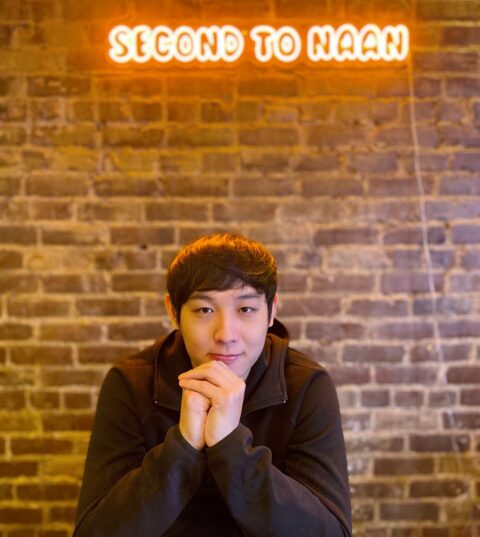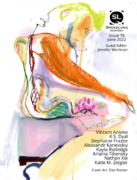The theme of maintaining legacy comes up in the story. As an Asian reader myself, I could relate to the anxiety over the end of it. The last few words of your story sum it up so well: “the final winter’s snow.” How did you decide to choose the imagery of a winter?
Thank you so much for the kind words. Yes! Most of my Asian friends typically keep quiet about the family legacy. As a kid, I even mistakenly thought only my parents said stuff about that. In college, my Asian friends started talking more seriously about love and aspirations—that’s when I realized how ubiquitous this burden of legacy is.
As for choosing winter, I’m at what I suspect is an early stage of being a writer where I’m fascinated by the possibility of turning everything into a metaphor. I’ve seen winter often used as a metaphor for death. And this is then extended into spring, which represents rebirth, a much more hopeful note to end a story on. Unfortunately, there is no spring in “Homesick (想家).”
The son in your story walks us through the complex challenges of navigating the intergenerational and intercultural differences within such a short frame. His unnamedness struck a chord with me somehow. How did you decide not to give him a name in the story?
As a gay man and as someone who has discarded their birth name, I think a lot about identity and the power of words to define it. I’ve heard it phrased as: words can capture meanings. To me, that suggests definitions can be prisons. Calling the main character “the son” brought that identity to the forefront and allowed me to home in on the complications contained within the word. I imagine he low-key hates me for calling him that, though!
I find it fascinating that the fragmentary snippets from the bleak events form a picture of the son’s not-so-happy life. What influenced your decision to use this technique?
In “The Years” by Alex Dimitrov (awesome poem), he describes a party where this drunk “someone,” probably in their twenties, admits to not having “had the childhood they wanted.” While I wasn’t directly inspired by this scene, sometimes when I’m just trying to exist in the present, the past wrenches me back, that less-than-ideal childhood never loosens its grip, kind of like what the partygoer in Dimitrov’s poem experiences. In “Homesick (想家),” I wanted to recreate that.
I love the pet names of the family members. Without shedding too much light on these relationships, they actually reveal a lot more. Was it your intention?
I’m not sure popo or gonggong are considered pet names in Mandarin, but I just checked and it seems waipo and waigong might be the more “official” version? I didn’t even know! I wasn’t raised calling my grandparents that.
When writing this story, I knew most readers wouldn’t understand Mandarin. But writing certain words in that language felt much more honest. It’s what the son uses, perhaps unconsciously, to understand his relationship with members of his family. So yes, certain words being more formal or less formal, that was intentional.
Could you share with us about some of your current/future projects of writing?
Sure! I’m currently working on my first novel, a gay bildungsroman featuring a cult, a cello, and a Chinese-American family. I’m also outlining a second novel that explores China and communism primarily through the lens of diaspora and ethnic minorities. Then there’s a list of short stories and flash I must revise … but I suffer from shiny object syndrome so my “needs revision” list only gets longer and longer!



 The core workshop of SmokeLong Fitness is all in writing, so you can take part from anywhere at anytime. We are excited about creating a supportive, consistent and structured environment for flash writers to work on their craft in a community. We are thrilled and proud to say that our workshop participants have won, placed, or been listed in every major flash competition. Community works.
The core workshop of SmokeLong Fitness is all in writing, so you can take part from anywhere at anytime. We are excited about creating a supportive, consistent and structured environment for flash writers to work on their craft in a community. We are thrilled and proud to say that our workshop participants have won, placed, or been listed in every major flash competition. Community works.